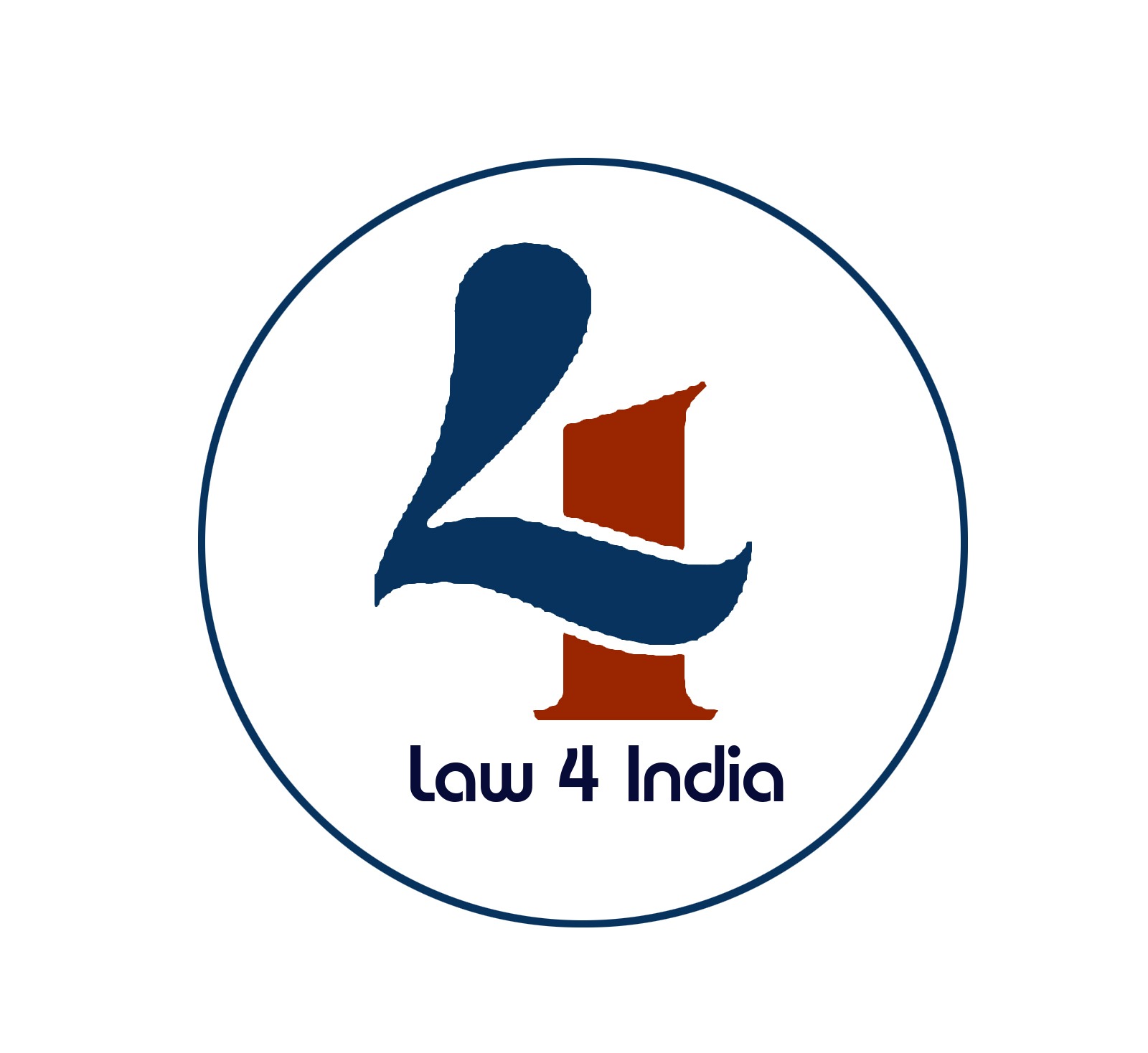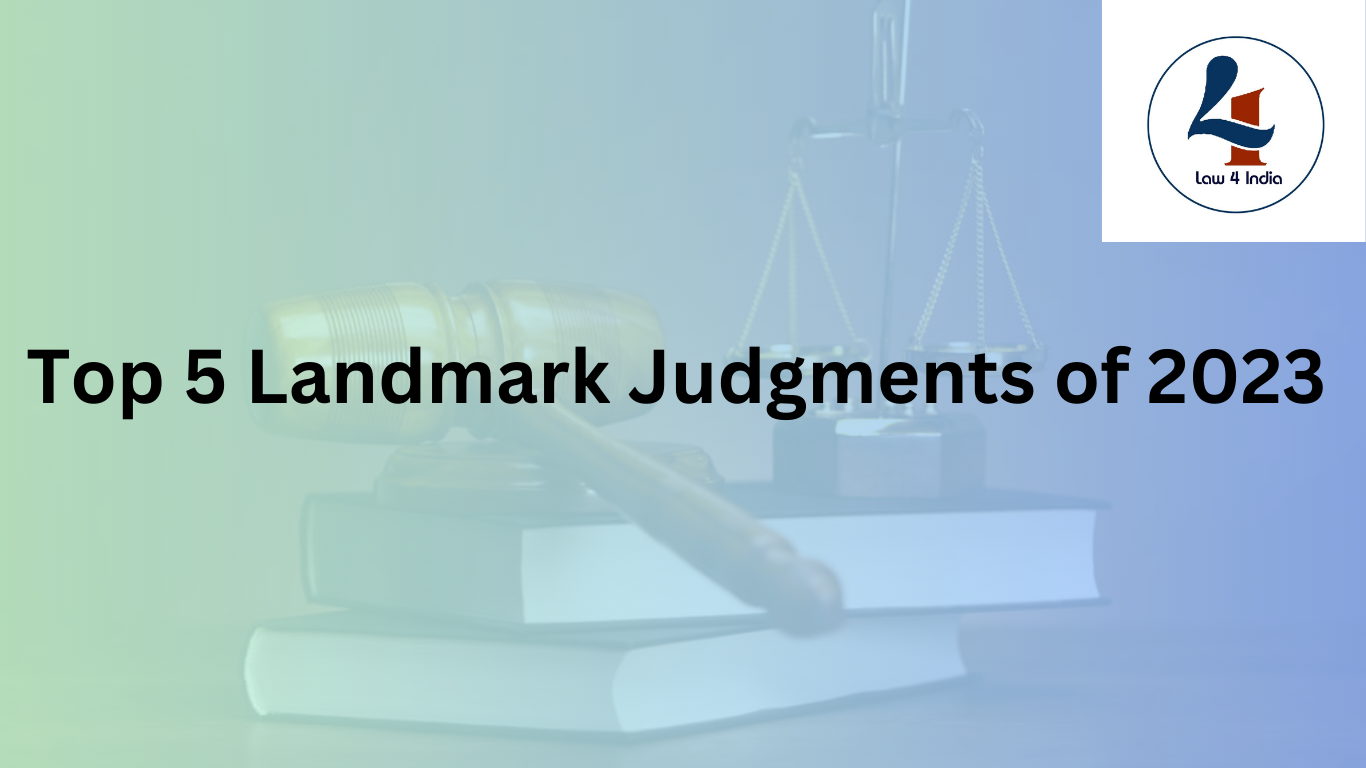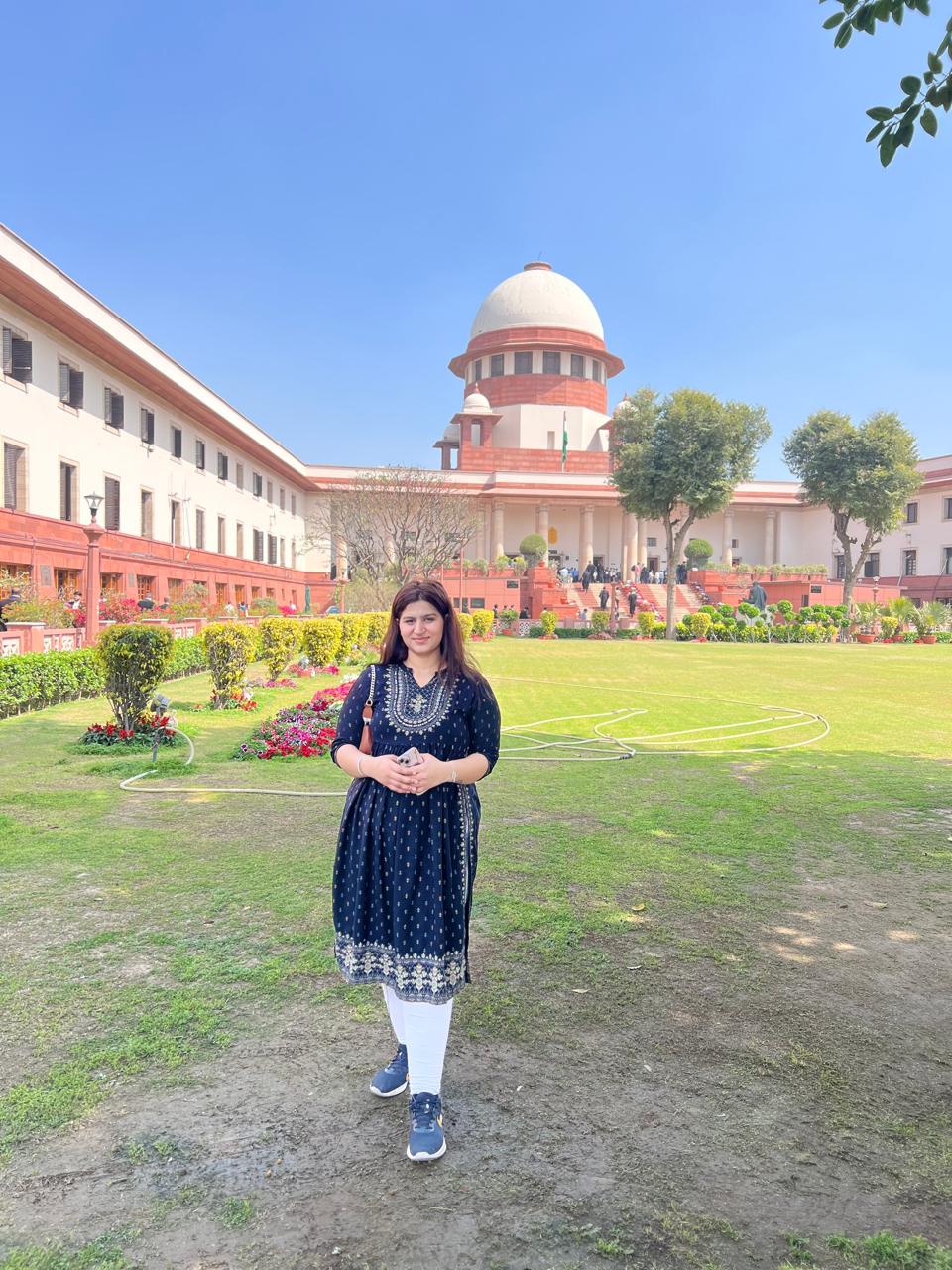1. Abrogation of Article 370 was unanimously upheld
In Re: Article 370 of the Constitution
Bench: (CJI) D.Y. CHANDRACHUD , (J) B.R. GAVAI , (J) SURYA KANT , (J) SK Kaul , ( J) SANJIV KHANNA
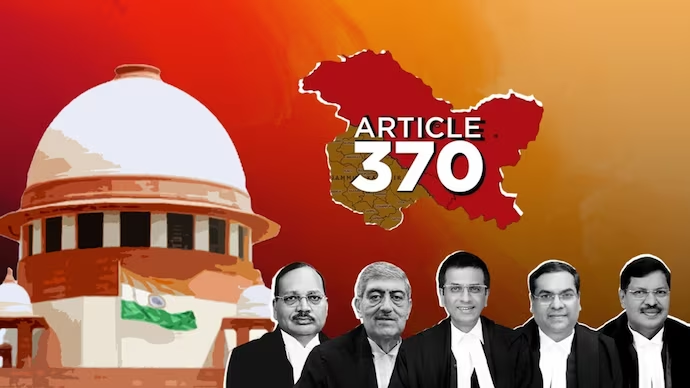
BACKGROUND
Article 370 of the Constitution provides a special status to Jammu and Kashmir (J&K). Article 370 was included as a temporary measure to recognize Jammu and Kashmir’s unique circumstances and to allow it a degree of autonomy. It granted the state its own constitution, a separate flag, and significant powers over internal matters, except defense, foreign affairs, finance, and communications. : Under Article 370, laws passed by the Indian Parliament were not applicable to Jammu and Kashmir unless the state government agreed. This led to a distinctive legal and political status compared to other Indian states. On August 5, 2019, the Indian government abrogated Article 370, effectively revoking the special status of Jammu and Kashmir and reorganizing the state into two Union Territories: Jammu & Kashmir and Ladakh which was challenged in the present case.
Judgment
The court determined that the President of India had the authority to revoke Article 370, which was initially included as a temporary provision.
The judgment reinforced that the legislative process followed by the government was appropriate and met constitutional requirements.
- The ruling emphasized the need for greater integration of Jammu and Kashmir with the rest of India, arguing that the abrogation was aimed at promoting development and national unity.
- The court acknowledged differing public opinions on the abrogation but maintained that legal and constitutional frameworks took precedence.
SAME SEX MARRIAGE CASE
2. SUPRIYO @SUPRIYA CHAKRABORTY v. Union of India
Bench : (CJI) D.Y. CHANDRACHUD , (J) S.K. RAUL , (J) S.R. BHAT , (J) HIMA KOHLI , (J) P.S NARASIMHA
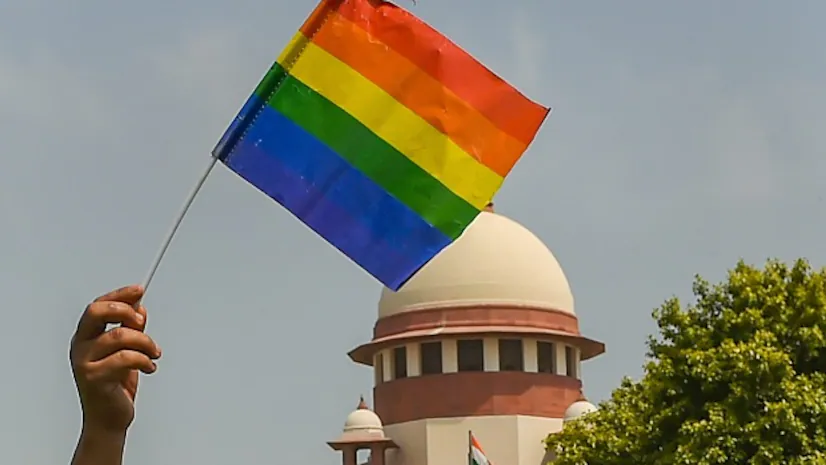
BACKGROUND :The case was one of the most widely discussed judgments of the year. It dealt with the right to marriage and focused on the rights of individuals from LGBTQ community to get married.
In 2018, the Supreme Court of India decriminalized homosexuality by striking down Section 377, marking a significant victory for LGBTQ+ rights activists. The court recognized the right to privacy and equality, setting the stage for further discussions on same-sex marriage.
Following the decriminalization, LGBTQ+ activists began advocating for the legal recognition of same-sex marriages, arguing that the right to marry is fundamental to individual dignity and equality. Several petitions were filed in various courts seeking legal recognition of same-sex marriages, culminating in a landmark case before the Supreme Court in 2023
Judgment
- On October 17,2023 the five judge bench delivered four judgments stating that there’s no fundamental right to marry in India and ‘ Do Not Hold a Power to Pass a Law’.
- (CJI) D.Y. CHANDRACHUD direct the Union of India to establish a committee to access the rights and entitlements of individuals in queer relationships without labeling them as marriages.
3. ECI APPOINTMENT CASE
Anoop Barnwal v. Union Of India , 2023
Bench : (J) K.M. JOSEPH , (J) AJAY RASTOGI , (J) ANIRUDDHA BOSE, (J) HRISHIKESH ROY, (J) C.T. RAVIKUMAR
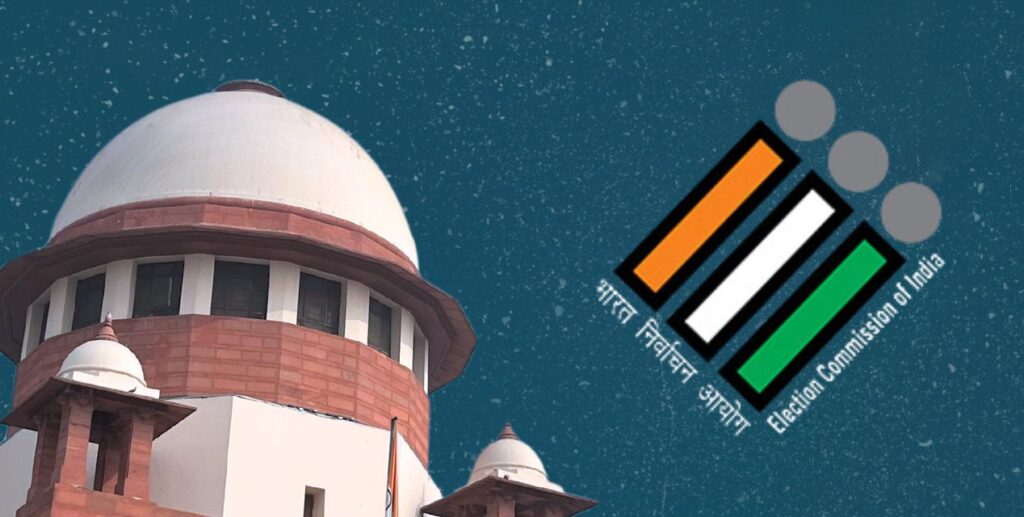
Relevant Provisions : Article 32 and 324 of the Indian Constitution
Background :Anoop Barnwal, a candidate in the Bihar Assembly elections, expressed concerns about the absence of legal provision for appointing of ECI Members. He challenged the election process and the role of the ECI in ensuring free and fair elections. He raised concerns about the alleged misuse of government machinery during the elections.
JUDGMENT
- The Supreme Court emphasized the ECI’s vital role in maintaining the sanctity of elections.
- It reiterated that the ECI has the authority to take necessary actions against any malpractices observed during elections.
- The Bench held the President should appoint the Chief Election Commissioner and Election Commissioners based on the advice of temporary committee comprising of :
- the Prime Minister,
- the Leader of the Opposition in the Lok Sabha,
- and the Chief Justice of India.
4. POWER STRUGGLE BETWEEN THE LG AND STATE GOVT IN DELHI
Case : Government of NCT of Delhi v. Union of India , 2023
Bench: (CJI D.Y. CHANDRACHUD , (J) M.R. SHAH , (J) KRISHNA MURARI , (J) HIMA KOHLI , (J) P.S. NARASIMHA
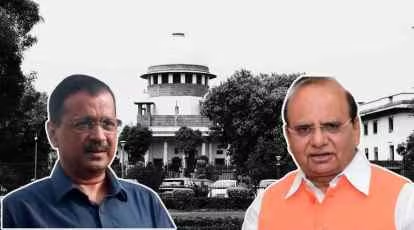
Relevant Provision :
- Article 73,162,239,239AA ,309 of Indian Constitution
- Section 44 of GNCTD ACT, 1991
BACKGROUND:
- Special Status: Delhi has a special status under the Constitution, with the LG representing the central government. This creates a dual authority structure where both the LG and the elected Delhi government (led by the Chief Minister) have overlapping powers.
- Article 239AA: This article provides for the governance of Delhi and outlines the roles of the LG and the legislative assembly. It grants the LG significant powers, particularly in matters related to public order, police, and land.
- The legal issue arose from a 2015 notification by the Union Ministry of Home Affairs , which granted the Lieutenant Governor (LG) of the National Capital Territory of Delhi (NCTD) over services, public order, police and land.
- In 2018 constitution bench clarified that NCTD is distinct from other Union Territories , and its executive and legislative powers extend to all subjects except those explicitly excluded.
- A 2019 verdict resulted in a split opinion on whether ‘ services’ were excluded under Article 239-AA (3) (a) . This issue remains pending before a regular judge bench.
JUDGMENT
A five-judge bench of the Supreme Court held that the elected government of Delhi is supreme and the Lieutenant Governor was bound to act on the aid and advice of the council of ministers. The Supreme Court has also concluded in no uncertain words that Delhi LG does not have independent decision-making powers.
At the best, the LG can refer a matter to the President if he fails to sort out his differences with the State of NCT of Delhi Government. The LG is also expected to invoke this power of referring any matter to the President only in the cases where the interests of Delhi administration are seriously compromised.
5 . IRRETRIEVABLE BREAKDOWN OF MARRIAGE
CASE NAME : SHILPA SHAILESH V. VARUN SREENIVASAN
BENCH : (J) S.K. KAUL , (J) SANJIV KHANNA , (J) ABHAY S. OKA , (J) VIKRAM NATH , (J) J.K. MAHESHWARI
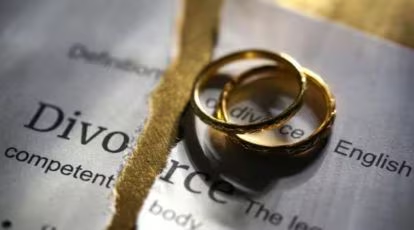
Relevant provisions :
- Article 142 of Indian Constitution
- Sectiob 13B of Hindu Marriage Act, 1955
BACKGROUND
In 2014 a couple sought divorce by mutual consent in the Supreme Court, citing the irretrievable breakdown of their marriage under the Hindu Marriage Act, 1955. The Supreme court granted divorce in 2015 using its Constitutional power under Article 142 , recognizing the marriage as irreparable. This case led to the need for guidelines regarding the Supreme Court’s authority under Article 142.
JUDGMENT
That on 01-05-2023, a 5-judge Constitution Bench had held that the Supreme Court has the power to dissolve a marriage on the ground of irretrievable breakdown under Article 142(1) of the Constitution and that it can dissolve a marriage by mutual consent without following the procedural requirement of a second motion.
The Court reiterated that “this Court can depart from the procedure as well as the substantive laws and exercise its discretion under Article 142 for dissolving the marriage between the parties by balancing out the equities between the conflicting claims of the parties.” The Court was cautious while stating that such discretion under Article 142 while granting divorce due to irretrievable breakdown of marriage should be exercised with great care and caution, and that such exercise should be aimed at ‘complete justice’ while one of the spouses opposed the dissolution of marriage.
